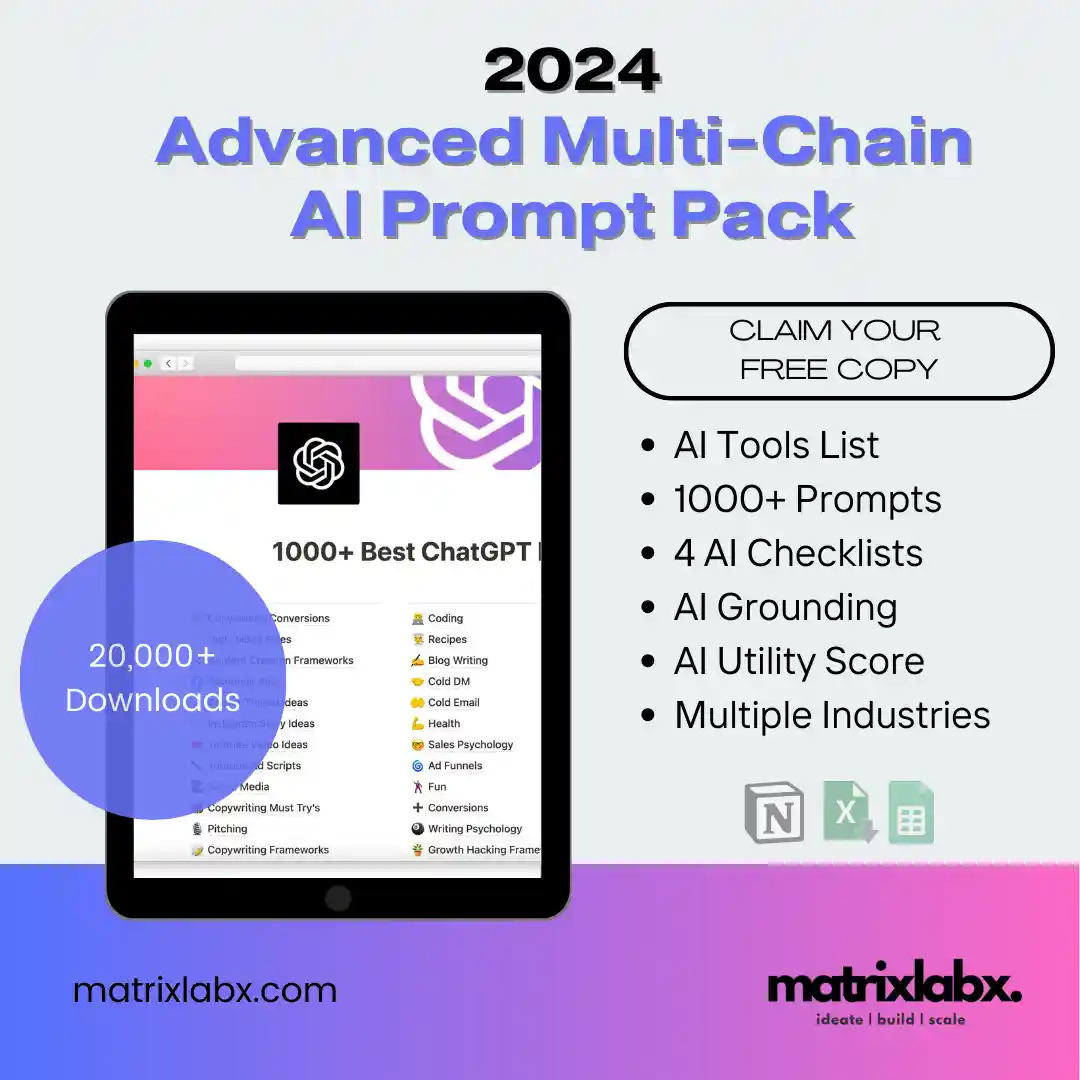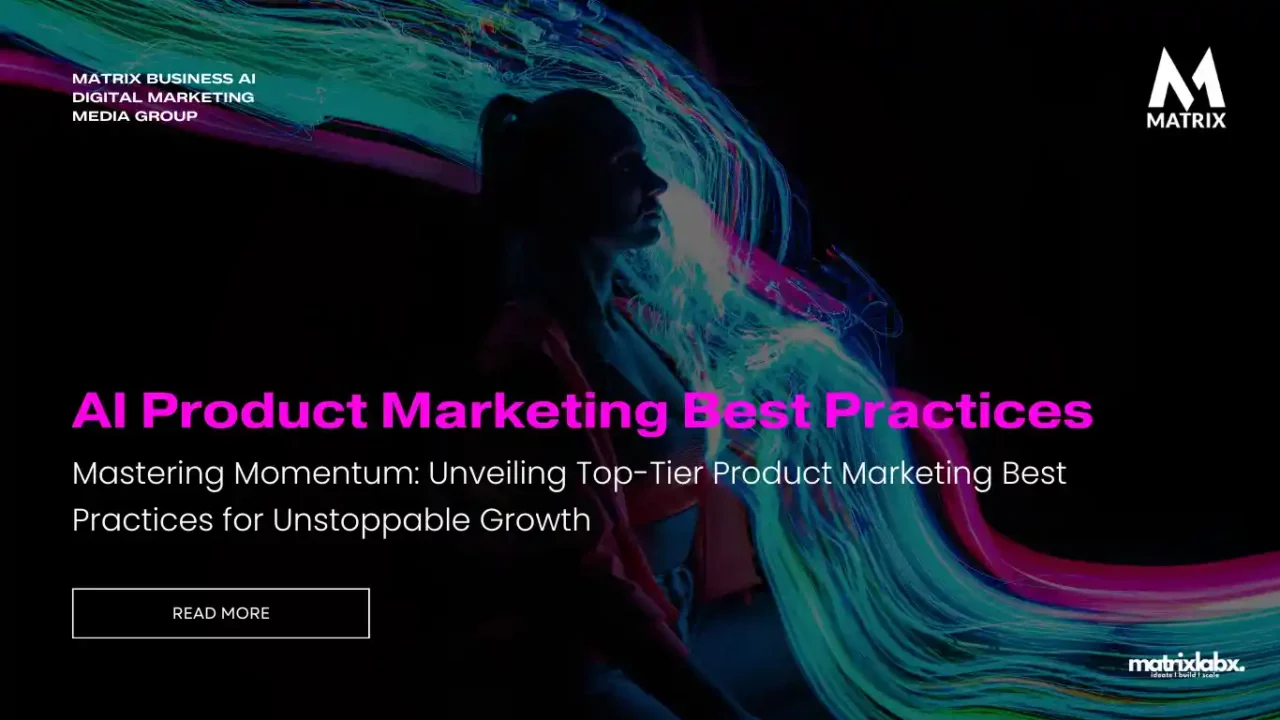AI-Driven Product Marketing: How Artificial Intelligence is Revolutionizing Marketing Strategies
AI-Driven Product Marketing: How Artificial Intelligence is Revolutionizing Marketing Strategies.
Absolutely. As we navigate the evolving marketplace, leveraging AIdriven Product Marketing is essential to reclaim and expand our market share. Here are some key points to consider:
- Consumer Insight and Personalization: AI tools can analyze vast amounts of data to uncover insights about consumer behavior and preferences. This enables us to tailor our marketing strategies and messages to resonate with different audience segments.
- Predictive Analysis: Through predictive analytics, AI can help forecast market trends and consumer behaviors. This foresight allows us to be proactive rather than reactive, positioning our products ahead of the competition.
- Optimized Marketing Budgets: AI can optimize advertising budgets by automating real-time bid management, ensuring that our ad spend is utilized effectively to reach the right audience at the right time, thus maximizing ROI.
- Enhanced User Experience: AI can power personalized user experiences on our digital platforms, making interactions with our brand more engaging and satisfying. This, in turn, fosters loyalty and advocacy among our customers.
- Competitive Analysis: This information is invaluable for tweaking our strategies to stay ahead.
- Realtime Decision Making: AI provides real-time data and insights, enabling quicker decision-making. This agility is crucial in today’s fast-paced market, where consumer preferences and competitive landscapes constantly evolve.
- Content Optimization: AI can automate content optimization, ensuring our messaging is always relevant and impactful. It can test multiple versions of content to find what resonates best with our target audiences.
- Automation and Efficiency: By automating routine tasks, AI frees up our marketing team to focus on more strategic, creative aspects of our campaigns. This not only increases efficiency but also fosters innovation.
- Enhanced Performance Measurement: AI-driven analytics provide a more nuanced understanding of our marketing performance across various channels and customer segments, helping us to refine our strategies continually.
- CrossChannel Marketing: AI allows for a seamless integration of cross-channel marketing efforts, ensuring a consistent and personalized customer experience across all touchpoints, which is key to building a strong brand.
Incorporating AI-driven strategies into our product marketing will not only help in winning back market share but also in establishing a stronger, more resilient marketing infrastructure for the future.

Introduction to AI-Driven Product Marketing:
In today’s digital age, the power of artificial intelligence (AI) is transforming various industries, and marketing is no exception. AI-driven product marketing has grown in popularity, enabling businesses to enhance their marketing strategies, boost sales, and drive customer engagement. In this comprehensive guide, we will delve into AI-driven product marketing, exploring its benefits, applications, and how it impacts businesses in the current market landscape.
I. Understanding AI and its Role in Product Marketing
1. Defining Artificial Intelligence:
Artificial Intelligence refers to developing computer systems that can perform tasks that typically require human intelligence. It includes various technologies such as machine learning, natural language processing, and computer vision, which enable computers to understand, learn, and make informed decisions.
2. The Rise of AI in Marketing:
AI has gained immense popularity in marketing due to its ability to analyze massive amounts of data, predict customer behavior, and personalize marketing campaigns. With AI-driven product marketing, businesses can make data-driven decisions and streamline their marketing efforts for better outcomes.
II. Leveraging AI in Product Marketing
1. Customer Segmentation and Targeting:
AI allows businesses to segment their audiences more effectively, identify customer preferences, and target them with personalized marketing messages. By analyzing customer data, AI algorithms can identify patterns and create accurate customer profiles, leading to highly targeted and relevant marketing campaigns.
2. Content Generation and Optimization:
AI-powered tools can generate content quickly and efficiently, saving marketers significant time and effort. From generating product descriptions to creating blog posts, AI algorithms can produce high-quality content tailored to the target audience. Additionally, AI helps refine and optimize content based on consumer engagement data, ensuring content resonates with prospects and customers.
3. Predictive Analytics and Forecasting:
AI-driven predictive analytics gives businesses valuable insights into future market trends, customer behavior, and demand. By analyzing historical data, AI algorithms can forecast sales, optimize pricing strategies, and even recommend product recommendations to customers, enhancing overall marketing effectiveness.
III. Enhancing Customer Experience with AI
1. Chatbots and Virtual Assistants:
AI-powered chatbots and virtual assistants have become increasingly popular in customer service and support. These tools can engage with customers, answer queries, and provide personalized recommendations, enhancing the overall customer experience. Moreover, AI algorithms continuously learn from interactions, improving response accuracy and efficiency.
2. Recommendation Systems:
AI recommendation systems analyze customer data, such as browsing behavior and purchase history, to provide personalized product recommendations. By leveraging AI algorithms, businesses can not only increase cross-selling and upselling opportunities but also enhance customer satisfaction by offering highly relevant suggestions.
3. Voice Search Optimization:
As voice assistants like Siri, Alexa, and Google Assistant become more prevalent, AI is crucial in optimizing marketing strategies for voice searches. By understanding natural language patterns and user intent, AI algorithms can help businesses optimize their content and improve search visibility in voice-driven searches, expanding their reach and driving more traffic.
IV. Overcoming Challenges Data Privacy and Security
1. Data Privacy and Security:
While AI-driven marketing offers immense benefits, it also raises concerns about data privacy and security. As businesses collect vast amounts of customer data, it is crucial to implement robust security measures and comply with privacy.
Data privacy and security are critical considerations for any organization using AI, and Vertex AI is no exception. Google takes many steps to protect the privacy and security of data used with Vertex AI, including:
- Data isolation: Vertex AI uses a variety of techniques to isolate data from different customers, including dedicated compute resources and encryption.
- Access controls: Vertex AI provides granular access controls to ensure that only authorized users can access and process data.
- Audit logging: Vertex AI logs all activity on the platform so that organizations can track who accessed what data and when.
- Compliance: Vertex AI is compliant with a variety of data privacy and security standards, including GDPR, CCPA, and HIPAA.
In addition to these measures, Google also provides a number of tools and resources to help organizations protect their data privacy and security when using Vertex AI, such as:
- Data governance: Vertex AI provides a data governance framework to help organizations manage their data and ensure that it is used responsibly and ethically.
- Security best practices: Google provides a number of security best practices for using Vertex AI, including recommendations on how to choose strong passwords, enable two-factor authentication, and manage access to data.
- Training and support: Google offers a variety of training and support resources to help organizations learn about data privacy and security best practices for using Vertex AI.
Here are some specific steps that organizations can take to overcome challenges related to data privacy and security when using Vertex AI:
- Implement a data governance framework. A data governance framework can help organizations manage their data and ensure that it is used in a responsible and ethical manner. This framework should include policies and procedures for collecting, storing, using, and disposing of data.
- Enable data encryption. Vertex AI provides encryption features that can be used to protect data at rest and in transit. Organizations should enable these features to protect their data from unauthorized access.
- Use granular access controls. Vertex AI provides granular access controls that allow organizations to specify who has access to what data. Organizations should use these controls to ensure that only authorized users can access and process data.
- Monitor user activity. Vertex AI provides audit logging features that allow organizations to track who accessed what data and when. Organizations should monitor user activity to identify any suspicious activity.
- Educate employees. Organizations should educate employees about data privacy and security best practices for using Vertex AI. This will help to reduce the risk of human error and data breaches.
By following these steps, organizations can help to protect their data privacy and security when using Vertex AI.

